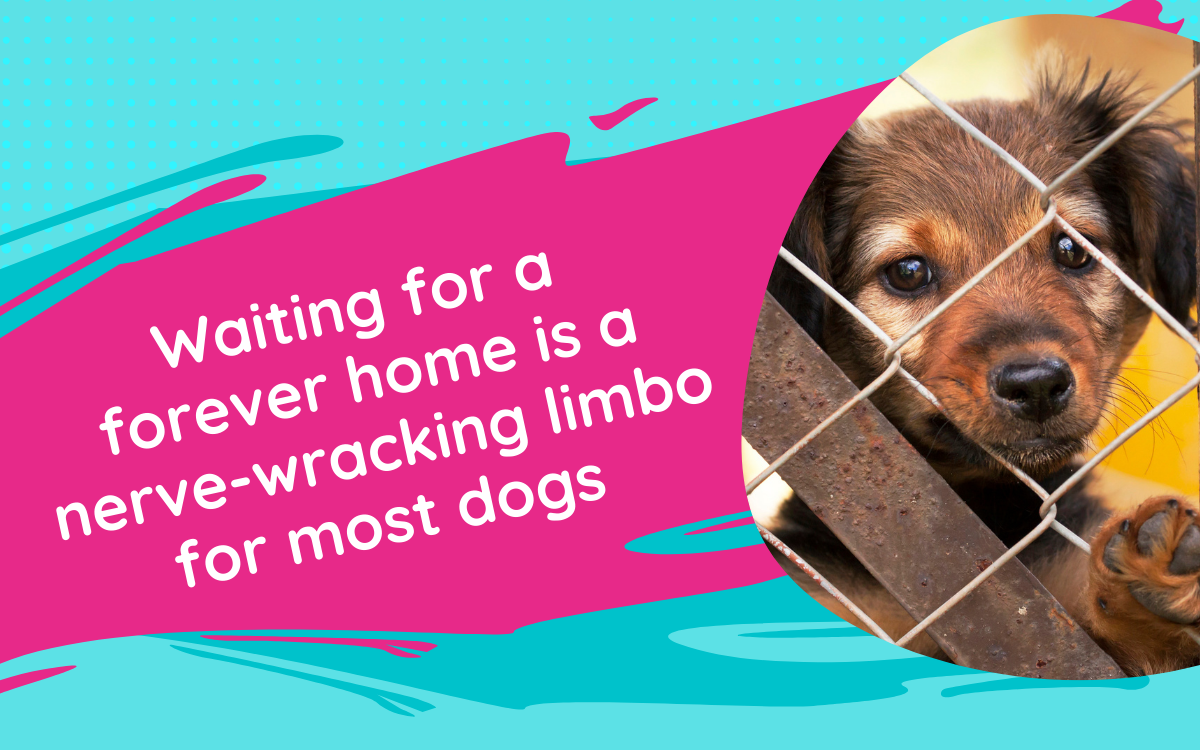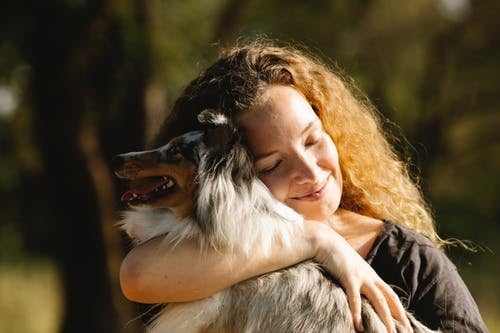What is a Rescue Dog? Your Questions Answered

Every time I think about rescue dogs, brave dogs like Noel, the two-legged Yorkie, we took on our first Dogs Day Out spring to mind.
Dogs like Noel are memorable because of the hardship they’ve endured and how inspiring their win is. They come in all shapes and sizes and from a variety of challenging situations.
In a nutshell, a rescue dog is any dog that needs placement in a new home because of abandonment, neglect, or abuse.
If you’ve been thinking about adopting a rescue dog and have a ton of questions, you’re in the right place.
Where Do Rescue Dogs Come From?

Everybody loves puppies, but once dogs grow out of the cute puppyhood stage, many owners opt out of caring for them.
Half of the dogs that need rehoming are surrendered by owners unable to deal with:
- Problematic behaviors, such as destructive chewing
- Aggressive behaviors
- Larger size than expected
- Extensive health issues
- Age related issues, such as vision loss, mobility loss, restlessness, and inappropriate elimination
Dogs get lost or displaced, sometimes due to natural disasters like hurricanes.
Did you know, shelters transport thousands of dogs annually from southern states, such as Texas and Tennessee, to the midwest and north?
Many southern states have less stringent animal sterilization laws and therefore larger stray animal populations.
Bad PR also forces plenty of animals into shelters long term; such as Black Dogs, Pitbulls and Chihuahuas.. Pitbulls and Chihuahuas are often returned to shelters by owners who were ill-prepared to handle their unique temperaments.
Check out this short film we made about the discriminations pitbulls go through.
What Is the Difference Between Animal Shelter and Animal Rescue?
The terms animal shelter and animal rescue are often used interchangeably and have overlapping functions.
However, there are some differences between the two that might influence your adoption choices.
Here is a table breaking down the differences between an animal shelter and animal rescue.
| Animal Rescue | Animal Shelter |
| Usually privately owned and funded . | Usually government-owned and may be the local pound |
| Specialize in rescuing specific types of animals or breeds | Takes in all sorts of animals . |
| Houses animals through a network of vetted foster families | Houses the animals in its own facility . |
| Usually not crowded as animals are fostered as soon as they come in | Often crowded as they don’t turn away any surrendered animals |
| Typically know more about each animal due to the fostering process | Have no opportunity to individually observe the animals |
| Typically have a rigorous adoption process that may cost more and include multiple home visits | Typically have a shorter and simpler adoption process since they need to create space |
While these differences generally apply, it’s advisable to research the processes and requirements of the shelter or rescue you want to adopt from.
What Is the 3-3-3 Rule for Rescue Dogs?

Imagine the sensory overload of being in a theme park; the smell of corn dogs and cotton candy on top, the shrieks of hyped-up kids, and the explosions of color everywhere.
That’s exactly how a rescue dog feels when they first enter your home.
Everything is new and overwhelming. You definitely won’t get an accurate read on their behavior or character until they settle in—hence the 3-3-3 rule.
- First 3 days: your overwhelmed rescue dog may not eat or drink well and may shut down, hide, or test boundaries by trying to run away.
- First 3 weeks: your dog settles into a routine and his new environment and may show some personality and behavioral issues.
- First 3 months: your dog bonds with his new family and experiences complete trust and comfort in his forever home.
The 3-3-3 rule helps us as pet parents to pace our expectations of the rescue dogs we foster or adopt.
Start your new pup off on the right paw with a good routine, a kind trainer, and a vet on call to help you navigate those first months.
What Issues Do Rescue Dogs Have?

According to the ASPCA, 2 million dogs are adopted from shelters every year and 710,000 lost dogs make it back home to their owners.
Finding a new home or waiting for a forever home is a nerve-wracking limbo for most dogs and certain behavioral issues commonly arise, such as:
-
- Anxiety
- Aggression toward people and pets
- Resource guarding
- Destructive behavior
- House training regression
- Poor social skills
- Barrier-related aggression
- Leash reactivity
- Constant whining
What Can You Do About a Rescue Dog’s Behavioral Issues?
I get it, you’re not a trainer or a dog behavior expert but there are simple ways to help you deal with some common dog behaviors.
- For anxious dogs who can’t relax and play freely or act out when you leave them, keeping busy is key. Get them active and challenge their minds with doggy puzzles. Competitive games such as tug of war also help to build your dog’s confidence.
- For fearful dogs who tuck tail, bolt, hide, or exhibit submissive behavior, food and a sense of security are necessary. Make his crate a safe space for your dog to relax. Use food to attract your scared dog and then let him come to you.
- For reactive dogs who stiffen, growl, bark, or lunge because of certain triggers, discovering their trigger is the first step. Is it food or kids or other dogs? Find their threshold when exposed to the trigger, and slowly push that threshold using good rewards each time.
When you think you’re being patient enough, add an extra dollop of it. Your rescue dog will need all the time and patience you can give.
How Much Does It Cost to Adopt a Rescue Dog?
It could cost you anywhere between $50–$500 to adopt a rescue dog.
For example, the city of Seattle charges $275 for the adoption of an adult dog, $375 for puppies under 6 months, and $100 for older dogs.
A Washington Post article put the upper estimate at $1,850 for purebred French Bulldog puppies rescued from an auction.
But don’t let the huge prices deter you from rescuing a furry friend; most local shelters and rescues fall within the $50–$150 range.
The adoption money that you pay is put to good use to help with:
- Spaying or neutering
- Vaccinations
- Vet visits and medication
- Food and Equipment
- Care for old and sick animals that aren’t easily adopted
Mixed in with the adoption fee are other pet related costs you may not be aware of:
- Dog or cat license—$20
- Microchipping—$50
- Initial vaccinations (if not included in adoption fee)—$50–$150
- Spaying or neutering (if not included in adoption fee)—$50–$300
- Vet appointments for the first year—$600
- Monthly medications—$50
Planning is key to successfully adopting a pet, and will enable you to budget for all the above costs and gauge your capabilities as a pet parent.
Fostering a rescue dog is an affordable way for animal lovers to dip their toes into caregiving. It costs you nothing but time and affection, since rescue centers will often provide food, medicines, and vet services.
Should I Adopt a Rescue Dog?

This is a question that only you can answer following a lifestyle audit.
I always encourage potential pet parents to ask themselves the following questions:
- Do I have enough time and a flexible schedule to walk the dog and play with him?
- Am I emotionally ready to handle any kind of doggy behavioral challenges?
- Does my home have enough space for my dog to rest and an outdoor area for play?
- Can I afford all the costs of a rescue dog?
- Do I understand that no dog is perfect?
If you can confidently answer these questions with a ‘yes,’ then you’re well on your way to being a good animal parent.
Make sure to do your research about the rescue center and dog you’re interested in and ask the right questions.
Now go out there, find a reputable dog rescue, and start planning for the new furry addition to your family!



